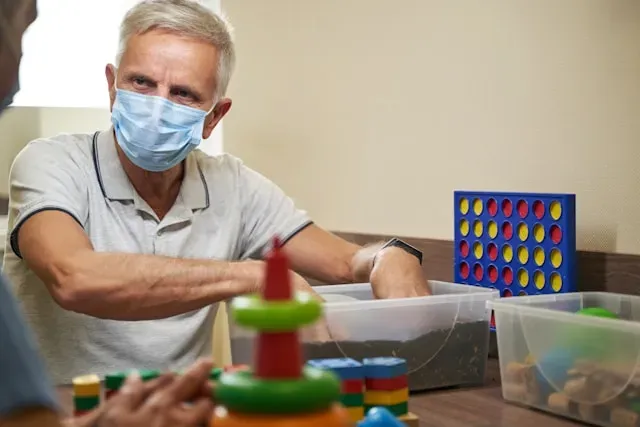
Occupational Therapy Rehabilitation
Occupational Therapy Rehabilitation is a crucial aspect of recovery for individuals with physical, cognitive, or emotional challenges. Learn more about the benefits and strategies involved in this process.
Get carepatron free
Commonly asked questions
Rehabilitation occupational therapy focuses on helping individuals recover from injury, illness, or disability by improving their ability to perform daily activities and regain independence.
While occupational therapy is a key component of rehabilitation, it is not synonymous with the entire rehabilitation process. Occupational therapy focuses on improving daily functioning, while rehabilitation encompasses a broader range of therapies aimed at restoring overall health and well-being.
Occupational therapy focuses on improving a person's ability to perform everyday tasks and activities, while physical therapy primarily addresses physical impairments and mobility issues. Occupational therapists often work on fine motor skills and activities of daily living, whereas physical therapists focus on gross motor skills and physical function.







